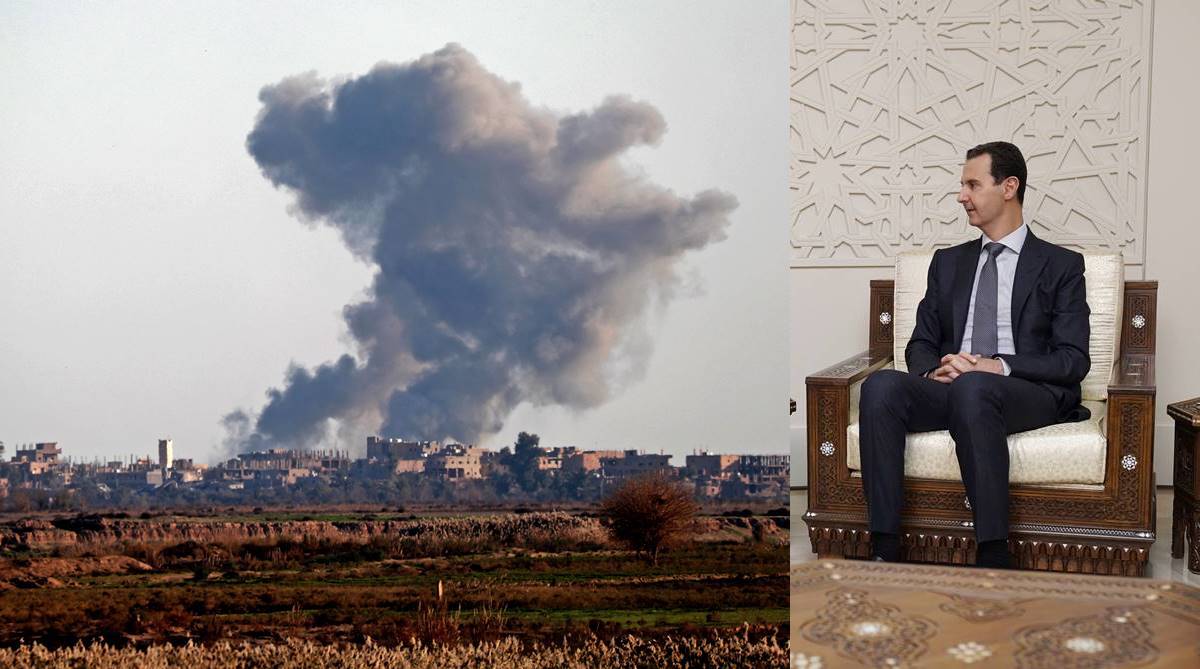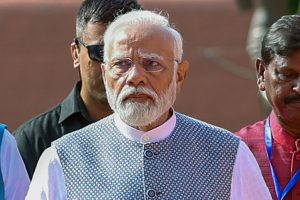It looks like 2019 will be a good year for the villain Syrian president Bashar al-Assad. His fate has rarely looked more predictable or benign.
Let’s face it. Assad will get away with all the carnage and bloodshed that he and his Russian and Iranian allies have imposed on the Syrian people.
It’s hardly a surprise. This is how we have come to treat people’s torments in the Middle East. Hundreds of thousands have died in Syria, and millions have escaped the country as their homes and villages were left in ashes. Syria looks half dead, the body beaten raw by friends who wanted the head to keep smiling for them. Now Russia and Iran can keep Assad closer than ever, certain about his loyalty.
Vladimir Putin must be thrilled.
But the Syrian misery seems endless. Nearly 6 million Syrian refugees and over 5 million displaced have nowhere to go in their own country.
Infrastructure has been demolished, whole villages wiped out, and almost all major cities have been razed to the ground. Refugee camps in Lebanon, Jordan, and in Syria itself, are starting to look like swanky neighbourhoods next to the shells of cities such as Aleppo, Homs, Hama and Daraa.
The West is looking the other way. It is fascinating how quickly Syria occupied the European agenda, and how fast it departed. When Syrian refugees were flooding into Europe, it seemed so important to reach a solution. A swift deal had to be signed with Turkey’s Recep Tayyip Erdogan to keep the refugees in check.
Emmanuel Macron and Angela Merkel rushed to woo Putin, and put more pressure on the US to step in. But once the flow of refugees started to slow, politicians stopped bothering.
It is all rather immoral and shameful. Syrian children look like those in Kosovo. They have faced the same atrocities and fate. However, in the nineties – after winning the war, of course – the West rushed to rebuild the country which Nato bombers had levelled.
In Syria, things are different.
Western bombs, by and large, did not flatten Syrian cities. Assad’s barrel bombs did the work. Even in Raqqa, where the US-led coalition sought to root out Isis fighters with a sustained bombing campaign, the US has accepted no liability for any civilian casualties.
That helps to explain why Western countries have escaped the sense of obligation that followed the Iraq invasion or the “war on terror” in Afghanistan.
Of course, Europe itself was rebuilt after the Second World War through the Marshall Plan. Billions of dollars were spent to create a better future for European children in refugee camps. This is not happening now, simply because Syria is not Europe. And there is no lurking threat of Communism to stiffen the resolve of the US.
Donald Trump’s intentions are now clear. In his decision to pull the American troops out of Syria he has opened the door to others. Last month, the US president tweeted that the “defeat” of Isis had removed his only reason for staying in Syria.
Whether this is an act of delusion or expediency, everyone in the Middle East anticipated the moment. It paves the way for regional Arab powers to sharpen their dull knives and offers little hope for bright future in Syria.
Syria was never strategically important for the West. It was always up to the Arabs to hold Damascus in check. When Hafez al-Assad (the father of the current President) brutally suppressed Muslim Brotherhood opponents in Hama in 1982, the West did not blink. Assad senior left thousands of civilians dead and wounded.
Next day, daily life went on as usual.
Ring any bells?
Now, Arabs are not left to manage this pariah state alone. They have the Russians, Turks and Iranians in the room too. Trump is reported to have told Erdogan: “OK, it’s all yours. We are done.” He has also tweeted: “Saudi Arabia has now agreed to spend the necessary money needed to help rebuild Syria, instead of the United States.”
Giving Syria away to the Turks, then inviting the Saudis to rebuild it, (just a few months on from the Khashoggi affair) shows how US foreign policy under Trump has veered towards the laughable.
Now, everyone is riding to the rescue. Assad’s rescue, of course. The UAE and Bahrain announced last month the reopening of their closed embassies in Damascus. Cairo has received Ali Mamlouk, the head of Assad’s intelligence services, and pressured the Arab League to readmit Syria into its ranks during an upcoming summit in March.
But the Arabs are late. Turkey and Iran are both racing to fill the vacuum caused by the Trump withdrawal. The Turks want to force the Kurds out of their historical lands on the other side of the border, and Erdogan has evoked the Ottoman Empire in his rhetoric.
Iran has already mastered whole areas in Damascus and Ghouta, and Israel has vowed to resist. In vain, most likely. Russia, too, might prefer to loosen Iran’s hold over Assad. But as long as he is safe and sound (in power, of course) Putin will be happy to keep things slow and steady.
And while the Great Game ebbs and flows, no one is paying attention to ordinary Syrians. It has never been about them from the start, and it never will be.
The rehabilitation of Syria does not seem to be a realistic outcome for 2019. The rehabilitation of Assad looks rather more likely.
In neighbouring Iraq, the western coalition bombed Mosul to rubble in its campaign to recapture the city from Isis. And yet reconstruction is slow, piecemeal and barely funded, and that’s in a country where Trump has (for now) decided to keep a military presence.
Even the wealthy Arab states show little interest. Their pockets are not as deep as they used to be and the effort to redeem Assad, from warlord to legitimate president, is more pressing.
The Syrian people, meanwhile, will never receive the Marshall rescue plan they need.
(The Independent)











